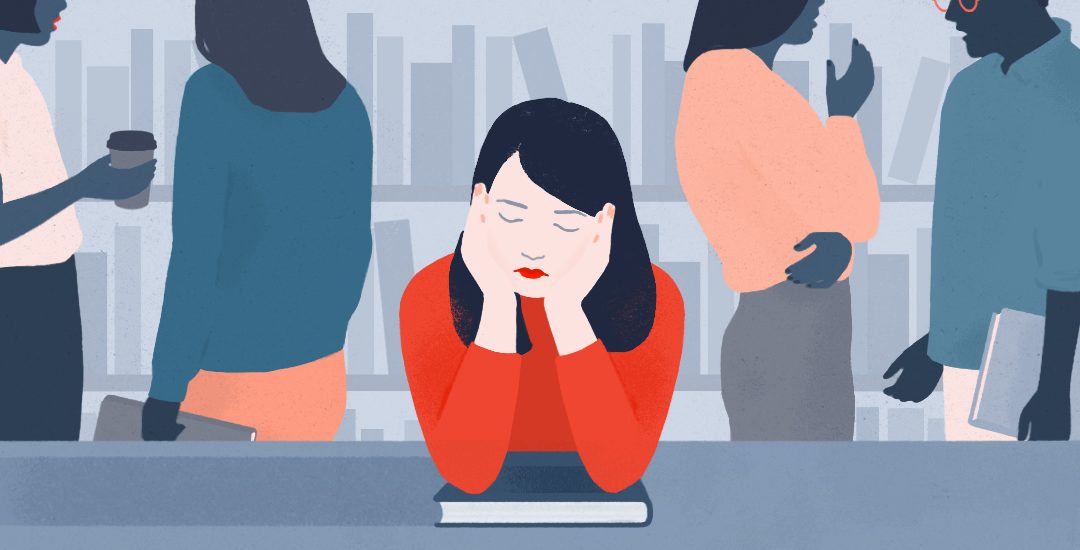Between my roles as a Student Mental Health Leader and a Peer Support Centre Volunteer, I spend a lot of time listening to students’ stories about their experiences on-campus. Though students’ experiences are incredibly varied, one common thread that I hear time and time again is that many students feel isolated and disconnected.
It’s no surprise that so many people lack feelings of inclusion and community on campus. At an institution that has 21,800 students — one sixteenth of the population of the Greater Victoria region — it can be easy to feel like a small fish in a big pond.
Many studies have shown how one’s sense of community can positively impact their mental health. Community has been found to be a protective factor against psychological distress for adults. And when non-traditional students (such as older students, part-time students, and single parents) invest in social relationships in their campus community, they are more likely to have a successful and positive experience with university life.
But, like many important things that help to bolster our mental health, establishing a sense of community isn’t necessarily easy. It can be particularly daunting for transfer students arriving from other institutions, international students living away from their families and homes, and people who have struggled with physical or mental health and had to take time away from their studies — and these are just a few examples.
I’ve had my own experiences with feeling isolated as a student. After taking a year off following my second year, I returned to school with a sense of what I wanted from my experience on-campus: to feel connected and inspired by all the aspects of the university experience — not just by the information I was learning. But as a person who is fundamentally shy and introverted, the idea of making these connections just by turning to a stranger in a lecture hall was… terrifying.
Luckily there were some alternatives. For me, making campus feel home-y involved joining clubs and volunteer initiatives — and then the rest clicked into place. I started to see familiar faces in my lecture halls; now I didn’t have to introduce myself to the people beside me because I already knew them. Over the course of my “third year”, I found my relationship with campus changing for the better.
Talking to other students has helped me realize that not only was I not alone in feeling alone — but other people found community in other ways. Here are some things that have helped myself, and my peers, feel more connected to their place of education:
1. Join a Club.
There are over 150 active clubs operating on the UVic campus. Club focuses range from engineering robots, to playing board games, to LGBTQIA2S+ networking, to mental health awareness… basically, there’s a community for everyone within the greater campus community. In most situations, going to a club meeting is a low-commitment way to meet people who share similar beliefs, values, and interests. Oftentimes they’ll host social events on- and off-campus, which help to foster connections!
A list of all operating UVic clubs can be found here.
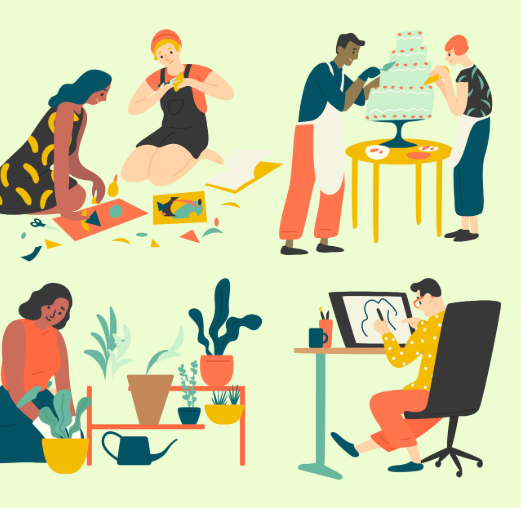

2. Join a Course Union.
Course unions are run by students, for students, in the different departments around campus. Course unions organize and hold academic and social events on and around campus. For example, the Psychology Organization of Students (PSYCHoS) has organized trips to the pumpkin patch and to the board game café, as well as guest lectures from prominent leaders in the field.
If you’re struggling to get to know people in your area of study, joining a course union and helping to plan these sorts of events can be a great way to feel more engaged with your department. More information can be found here.
3. Check Out The First Peoples House.
For years, I walked past the First Peoples House without feeling that it was open to me. However, upon completing their (excellent) Indigenous Cultural Acumen Training (ICAT), it came to my attention that this space is not solely for indigenous students: rather, it’s a beautiful, respectful space that fosters feelings of connection and community.
The First Peoples House is “a social, cultural and academic centre for Indigenous students at UVic and serves as a safe and welcoming place that encourages the building of community”.
Elders are often available for consult and conversation, regardless of whether or not one is of indigenous descent.
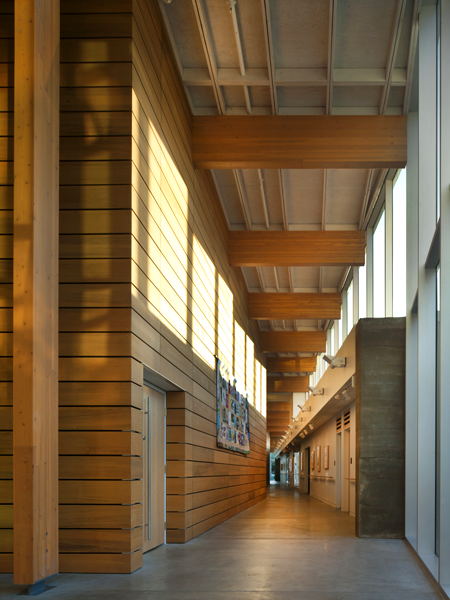

4. Volunteer!
Volunteering on-campus has by far made the greatest difference for me. Through my experiences volunteering, I’ve connected with the student body, made friends who share similar values, and have established valuable support from mentors and faculty.
Volunteer opportunities on-campus are varied. You can volunteer in a research lab, with one of the Office of Student Life Student Leadership Programs, or with one of the UVSS Advocacy Groups and Affiliated Organizations. I’m sure there are many other opportunities as well!
5. Stop by Multifaith Services.
I’m not a religious person. So, for the first few years of my degree, I didn’t give much thought to Multifaith Services. However, whether or not you practice a faith, this is an amazing resource on-campus.
If you are religious or spiritual and are missing the connections that your place of worship provided at home, Multifaith Services can help you find support, belonging, and a safe, respectful space to practice your faith.
Not only do they offer religious and spiritual support… they also host yoga and meditation classes, occassional free meals, and the amazing pet café on Wednesdays!
They’re also right next to the beautiful Finnerty Gardens. There’s some research that shows that nature can make you feel kinder, more connected, and happier… which never hurts.
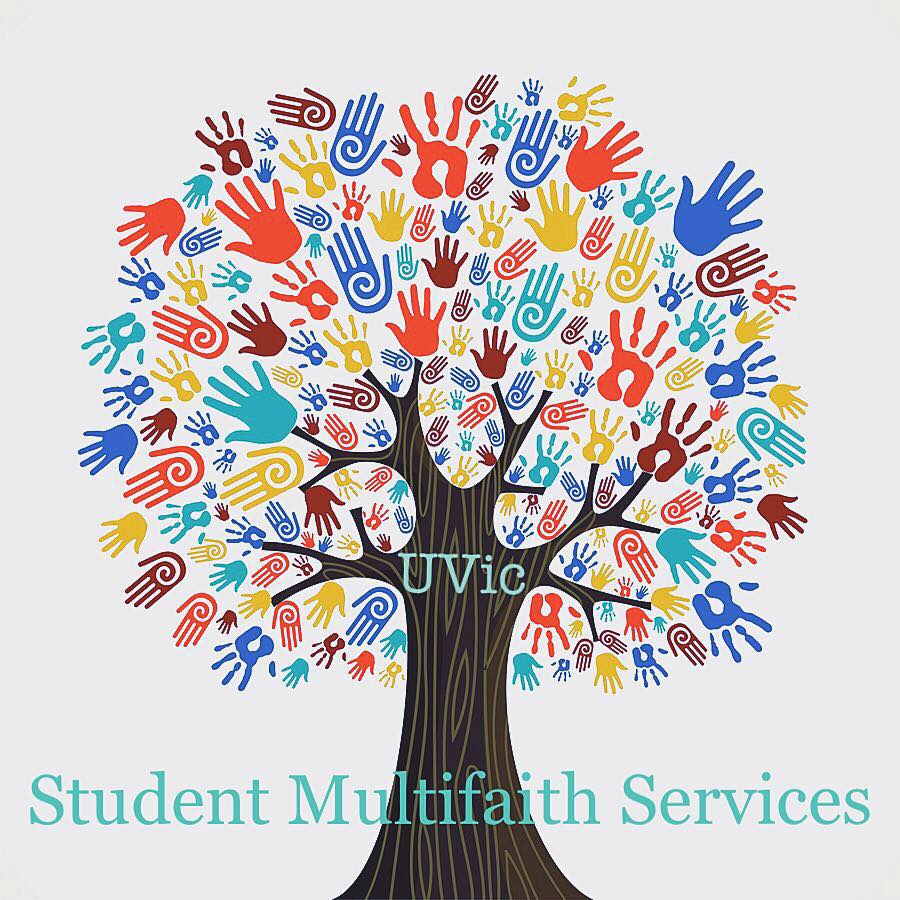
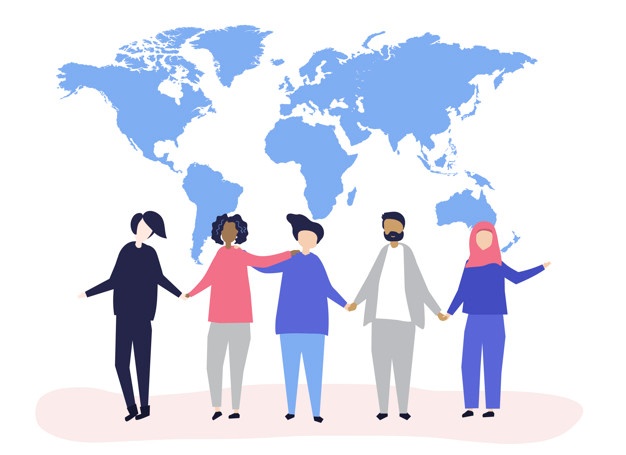
6. Check out UVic Global Community.
UVic Global Community involves “international, indigenous and domestic students, staff and faculty working together to celebrate diversity, advance inter-cultural competency and cultivate an inclusive and globally minded campus“.
The Global Community offers programs, services, volunteer opportunities, important dates, informative articles and events for international students, as well as the general student body.
7. Keep Tabs on Events.
I had no idea how many events existed on-campus until I started planning them. Whether it’s a guest lecture or on-campus show at the Farquhar Auditorium, a pub quiz night at Felicita’s, Student Leadership and Confessions and Crushes’ partnership Find a Friend events, there are tonnes of events happening at any time of day on-campus.
Check out the UVic Student Mental Health facebook page and Mental Health Awareness Club facebook page for upcoming mental-health-focused events.
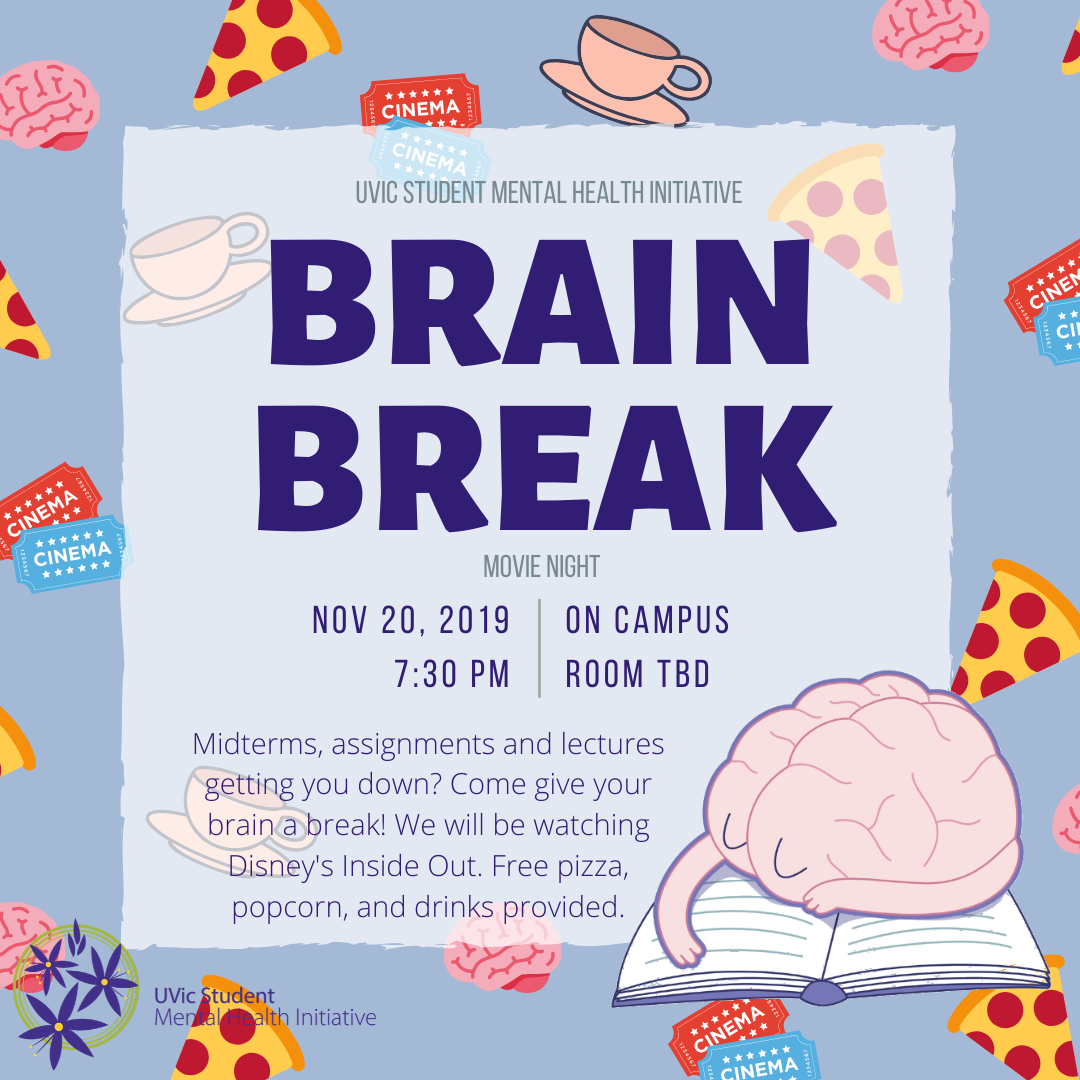
If you’re feeling disconnected, maybe some of these things won’t apply to you — and that’s okay! Different things will work for different people. But I can say hands-down that establishing campus not just as a place to learn, but a place to be, has expanded my life as a student and made me healthier and happier overall.
If you’ve struggled to establish community on campus and have found something else that works for you, please let us know in the comments. I’m sure there are so many other ways to find a sense of connection on campus… I’m just one person, and I only know so much!
As always, thanks for reading!
– Cassidy
The views expressed in this blog are my own, and do not necessarily reflect the policies or views of the University of Victoria. I monitor posts and comments to ensure all content complies with the University of Victoria Guidelines on Blogging.
